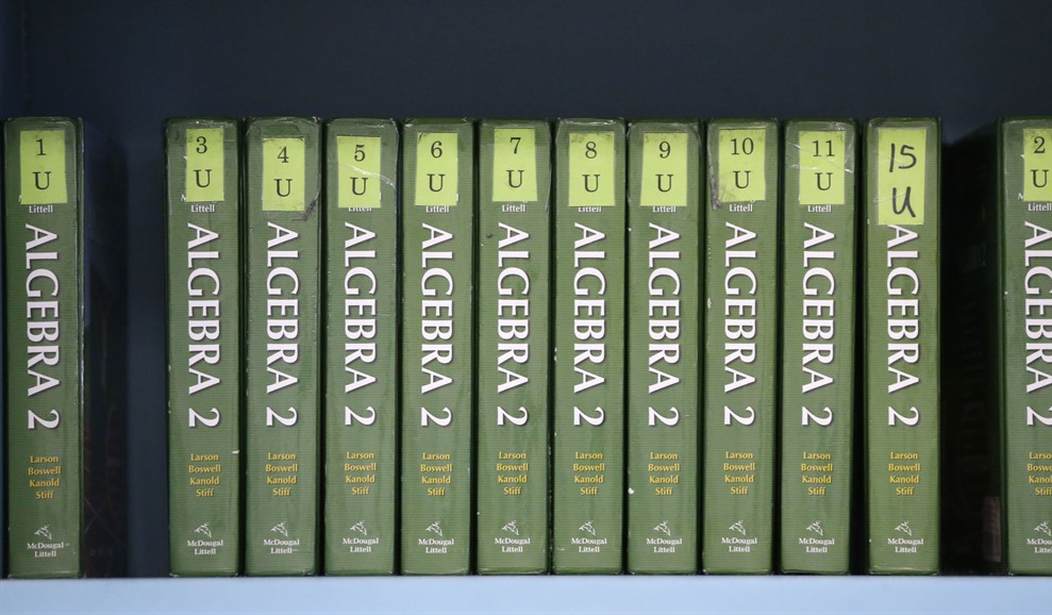Tests aren’t all the rage these days. Meritocracy isn’t either. Neither, really, is school — at least, not the conventional kind. Educational institutions these days appear as ideological training grounds set against the backdrop of outdated academics. Yet, in a miraculous move, MIT has gone old-school.
Previously, the renowned Massachusetts Institute of Technology ditched any consideration of standardized testing amid admissions. But on March 28th, it announced a reinstatement of the ACT/SAT requirement.
Via an article by the MIT News Office, the about-face was outlined.
The Institute suspended its longstanding requirement in 2020 and 2021 due to the COVID-19 pandemic that prevented most high schoolers from safely taking the exams.
But now there’s “safe, effective pediatric vaccination” for the coronavirus as well as “free in-school SAT” and “digital SAT.”
Perhaps more pertinent to the repeal: the fact that testing works.
Research conducted by the admissions office shows that the standardized tests are an important factor in assessing the academic preparation of applicants from all backgrounds, according to Dean of Admissions and Student Financial Services Stuart Schmill.
Pepper in some wokeness:
[Dean Stuart] says the standardized exams are most helpful for assisting the admissions office in identifying socioeconomically disadvantaged students who are well-prepared for MIT’s challenging education, but who don’t have the opportunity to take advanced coursework, participate in expensive enrichment programs, or otherwise enhance their college applications.
From the horse’s mouth:
“Our research has shown that, in most cases, we cannot reliably predict students will do well at MIT unless we consider standardized test results alongside grades, coursework, and other factors. These findings are statistically robust and stable over time, and hold when you control for socioeconomic factors and look across demographic groups. And the math component of the testing turns out to be most important.”
Those ideas will surely offend a lot. After all, we’re increasingly informed that any sort of meritocracy is a racist myth — see “College Schools Students and Staff on Microaggressions’ ‘Death by a Thousand Cuts’ and the ‘Myth of Meritocracy’.”
In the fall, Google workers were trained on the “white supremacy” of the “meritocracy myth”:
A Google DEI Lead created an internal document called “Anti-racism resources,” containing readings and racial-consciousness exercises. One graphic claims that “colorblindness,” “Columbus Day,” “weaponized whiteness,” and “Make America Great Again” are “covert white supremacy.” pic.twitter.com/kLIc5JZu8U
— Christopher F. Rufo ⚔️ (@realchrisrufo) September 8, 2021
More broadly, according to the Smithsonian, the notion that “hard work is the key to success” is an “aspect and [assumption]” of whiteness:
The National Museum of African American History & Culture wants to make you aware of certain signs of whiteness: Individualism, hard work, objectivity, the nuclear family, progress, respect for authority, delayed gratification, more. (via @RpwWilliams)https://t.co/k9X3u4Suas pic.twitter.com/gWYOeEh4vu
— Byron York (@ByronYork) July 15, 2020
Yet, MIT’s use of scoring will persist.
Stuart hailed the importance of mathematical merit:
“An MIT education combines deeply analytic thinking with creative hands-on problem-solving to prepare students to solve the toughest problems in the world. Our General Institute Requirements demand that all first-years must take (or place out of, through Advanced Standing Examination) two semesters of calculus and two-semesters of calculus-based physics, no matter what field they intend to major in; students who do not place out of physics also take a math diagnostic. In other words, there is no pathway through MIT that does not include a rigorous foundation in mathematics, mediated by many quantitative exams along the way. So, in a way, it is not surprising that the SAT/ACT math exams are predictive of success at MIT; it would be more surprising if they weren’t.”
As noted by The College Fix, UC Berkeley Professor Steven Hayward has a very unwoke explanation for the reversal, and it involves archenemies:
“I have a hunch that MIT’s decision was driven by competitive pressure, namely, that its arch-rival for science supremacy in academia — CalTech — might start to leave MIT conspicuously behind if MIT continued down the road to politically correct admissions practices. CalTech has never embraced affirmative action admission dogma, and hence has a larger Asian student body than peer universities.”
How much of wokeness will competition fix? That remains to be seen. But don’t misunderstand — MIT’s still aboard a train headed for wokeville:
MIT Boots Science Professor Following His Triggering Take on Diversity, Equity and Inclusion
https://t.co/z589oHbmRv— RedState (@RedState) October 7, 2021
For now, however, the school’s choo-choosing merit.
If in the future, both MIT and CalTech give up on getting good results, maybe we can look on the bright side:
China's Eating Our STEM Field Lunch, But at Least There's 'Ecofeminism'
https://t.co/ka2uHm3awp— RedState (@RedState) August 12, 2021
-ALEX
See more content from me:
Study: .005% of America Will Use Biden’s Passport Provision to Be a Genderless Alien
‘Self Defense’ Course Says Don’t Call Cops — They May Shoot the Black Victim
Find all my RedState work here.
Thank you for reading! Please sound off in the Comments section below.













Join the conversation as a VIP Member